Hartmann's operation
To treat cancer of the sigmoid colon, rectosigmoid section, as well as tumor lesions of the upper and middle ampullary rectum (if it is impossible to form an anastomosis - stitching two sections of the intestine), Hartmann's operation is used - an intervention during which part of the rectum is removed, and its open end displayed on the abdominal wall and sutured to the skin. As a result, an artificial anus is formed - a colostomy. Such a surgical intervention is carried out both in a planned and an emergency manner.
Indications
- oncological neoplasms of the sigmoid colon;
- malignant tumors of the rectosigmoid part of the intestine;
- complicated intestinal obstruction;
- through-hole of the intestine;
- volvulus of the sigmoid colon, accompanied by peritonitis or gangrene of intestinal tissues;
- thrombosis of the vessels of the mesentery of the sigmoid colon;
- germination of a tumor neoplasm into adjacent organs with the absence of the possibility of its radical removal.
Contraindications to resection of the sigmoid colon are:
- acute inflammatory diseases;
- chronic diseases in the stage of decompensation;
- violation of the blood clotting process;
- end-stage cancer with extensive metastasis;
- coma of the patient.
Preparing for Hartmann's operation
The preparatory stage includes a specialist consultation, as well as preoperative analyzes and examinations. Mandatory is the delivery of a general analysis of blood and urine, a biochemical blood test, a coagulogram. It is also necessary to be tested for hepatitis B, C, HIV, and to determine the blood group. Among the instrumental studies, an electrocardiogram, chest x-ray, colonoscopy, irigoscopy, ultrasound, or CT of the abdominal organs are prescribed. In the presence of concomitant chronic diseases, the specialist can prescribe additional studies and consultations with specialized doctors, as well as consultations with an anesthesiologist and therapist. It is imperative to inform your doctor about all medications you are taking and any allergic reactions to anything.
On the eve of surgery, it is recommended to eat high-calorie foods rich in fiber. A few days before the operation, antibacterial drugs are prescribed to prevent the likelihood of infection of the abdominal cavity and postoperative sutures. On the day of the operation, you can neither eat nor drink - the last meal should be at least 8 hours before the surgery. Also, a few hours before the procedure, a cleansing enema will be performed.
Operation progress
Hartmann's operation can be performed by the traditional method, which implies open surgery on the abdominal cavity, and laparoscopically - when the intervention is performed through several small punctures, into which surgical instruments are inserted, connected to a video camera. Today, specialists in Ukraine give more preference to performing operations by the laparoscopic method, since it has its advantages:
- less trauma (since large incisions are not required, the entire operation is performed using 3-5 punctures of the abdominal wall);
- the severity of postoperative pain syndrome decreases;
- excellent cosmetic effect and no visible scars;
- reduction of the postoperative period;
- less blood loss;
- faster activation after the intervention.
The choice of the method of operative access and the volume of surgical intervention is carried out by the surgeon after a comprehensive examination of the patient and depends on the type, form, and stage of the disease, the general health, and age of the patient, and many other factors.
Surgery is performed under general anesthesia. During the operation, the abdominal wall is dissected from the pubic area a few centimeters above the navel, a visual examination of the cavity is carried out for the presence of metastases.
Further, the operated area of the intestine is fixed with clamps and excised, and the resection is performed at a distance of several centimeters from the affected area. The upper part of the intestine is removed outside the abdominal cavity and a colostomy is formed - an artificial anus. The edges of the remaining rectum are sutured with catgut and immersed in a small pelvis. The final stage is drainage of the abdominal cavity and layer-by-layer suturing of the surgical wound.
After the operation, the patient is placed in an intensive care unit for a day, then spends several days in a hospital under close medical supervision. The day after the intervention, it is allowed to drink. The postoperative diet is expanded gradually. The rehabilitation period usually takes up to 3 months.
The surgeons of the Dobrobut network of medical clinics in Kyiv have extensive experience in performing surgical interventions in a laparoscopic and open way. Our specialists have at their disposal the latest equipment, control and visual equipment, high-tech tools, and materials. We ensure that patients stay in the most comfortable conditions, under the constant supervision of the staff. At the same time, the cost of our services is quite loyal in comparison with prices in Ukraine.
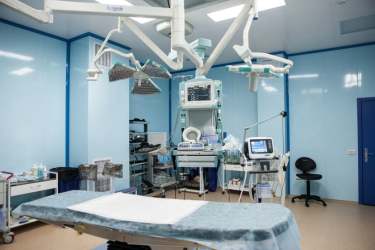
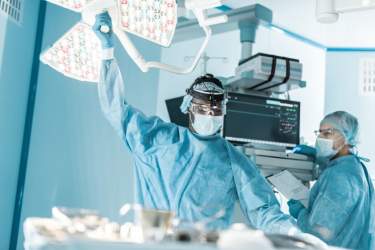
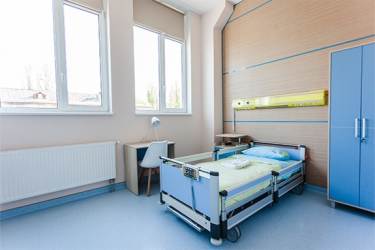
Bibliography
- Mark Gurarie - Hartmann’s Procedure: Everything You Need to Know. Published online, 29 December, 2020
- Dr. Jasmine Shaikh - Why Is Hartmann's Procedure Necessary? For Diverticulitis. Published online, 07 September, 2020
- Angel Mario Morales Gonzalez - Open Hartmann Procedure: Background, Indications, Contraindications. Published online, 01 September, 2021
Our advantages
Our services
Choose the nearest clinic to you
ISO certificates
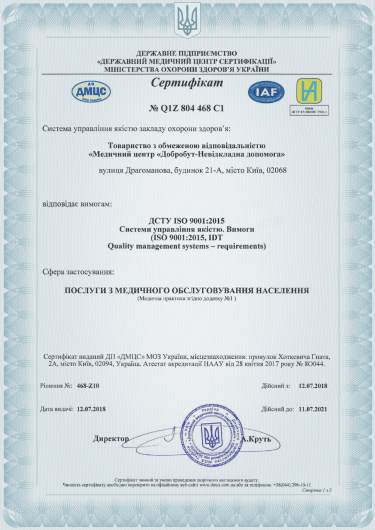
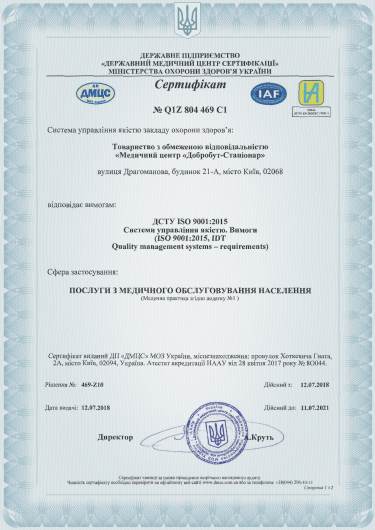
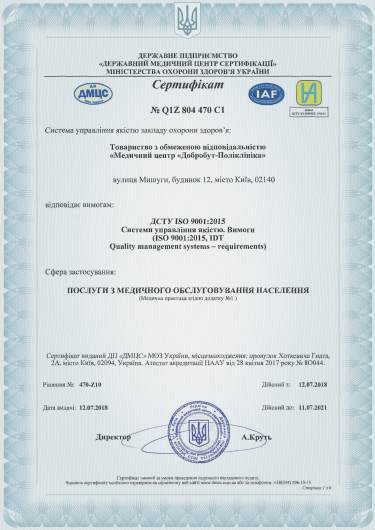
Accreditation certificates
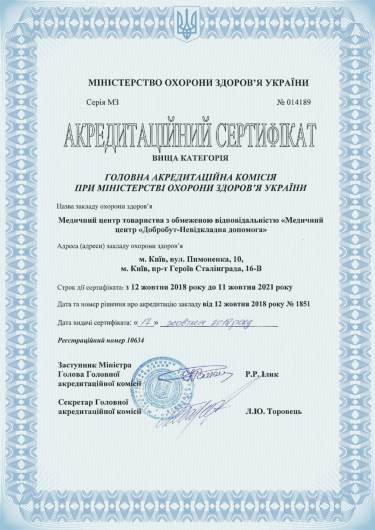
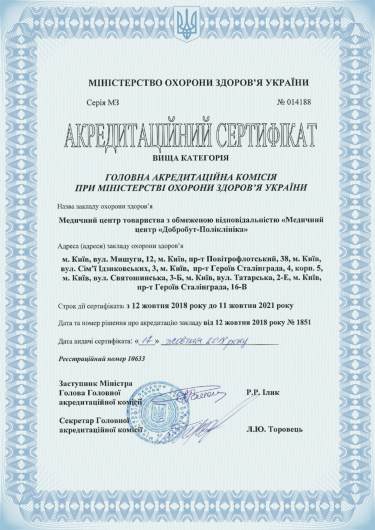
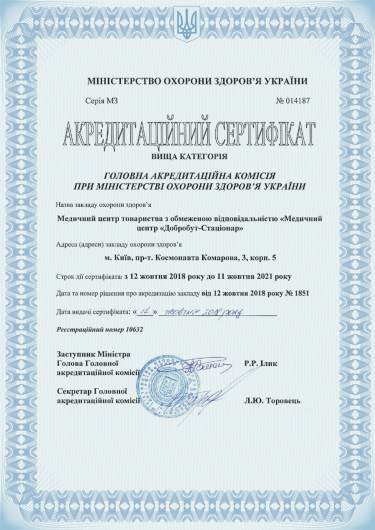
Medical practice licenses
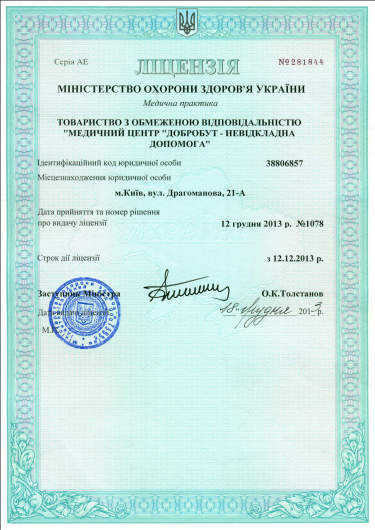
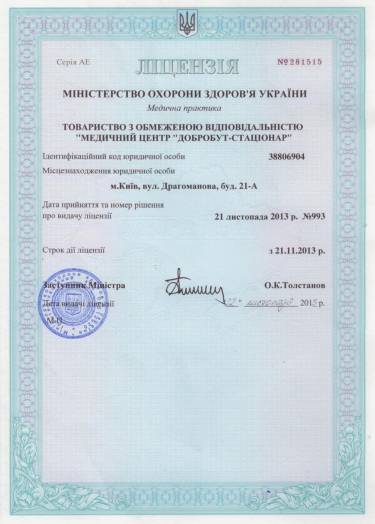
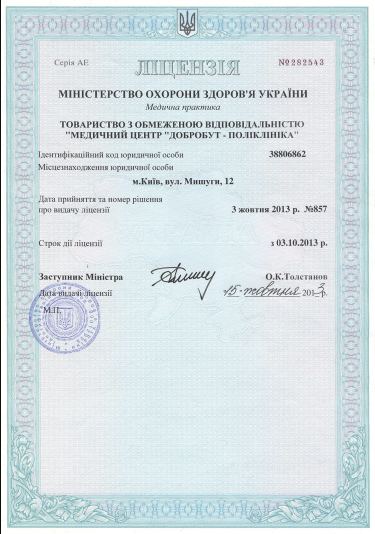
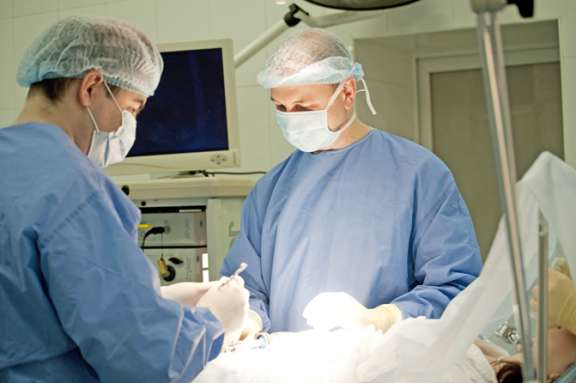

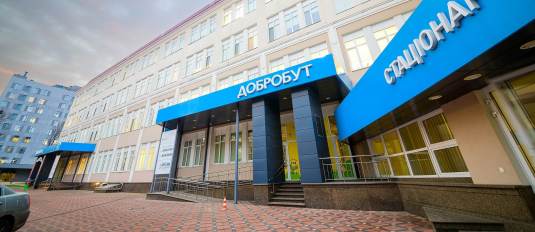
@2x.png)
@2x.png)
%402x.png)
%402x.png)
